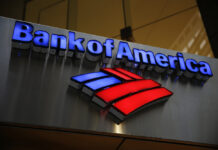The financing of the domestic solar industry has become more complicated. The Trump administration last week put a new 30 percent tax on imported solar panels in an attempt to bolster domestic manufacturers.
Doug Sabetti, owner and founder of Newport Solar, talks with Providence Business News about the new tax, what his company has done and whether the strategy will pay off.
PBN: What does this mean to your company?
SABETTI: Well, we are not loved by this administration. The tariffs are in place for four years and start off at 30 percent for the first year and decline 5 percent per year. When I first read about this last summer, I correctly predicted Trump would put tariffs on imported solar, so I started stocking up in anticipation of it to soften the blow to my company.
PBN: How much did that strategy help?
SABETTI: By stocking up [on] a year’s worth of panels, I can maintain my normal pricing for a year, and next year when the tariff drops down to 25 percent, that’s when I’ll start making new panel purchases. I estimate it’ll be about a 3 percent increase to overall system costs. By stock piling panels, I’ve probably saved $50,000, maybe more.
PBN: How did this tariff come to be?
SABETTI: It’s a tariff that no one is familiar with because it comes out of a law from 1974 and it hasn’t been used in almost 20 years. It’s called a Section 201 Trade Case and the last time it was implemented – then on steel – it did so much damage to the domestic economy it had to be removed. It happened because American workers were installing and using the imported steel. When [the international supply] stopped, the supply couldn’t be met domestically. … The same thing will happen with solar. We don’t have a domestic supply that’s close to adequate to fill the need.
PBN: What impact do you see this having on the overall industry?
SABETTI: The tariffs are going to slow down the solar industry. It’s going to slow down the utility-scale projects because the solar panels are a much larger portion of the overall cost. For residential, the actual solar panels are a much smaller part of the overall cost. The utility and commercial sectors will hurt much more. The tariffs were designed to bolster American manufacturers to meet this robust demand, but the tariffs are going to cut that demand way down. On top of that, it’s always been known it’s not going to help domestic manufacturing much. It will help a bit, but it will hurt the overall industry much, much more.
PBN: At the very least, doesn’t this make American solar manufacturers more competitive on the global scale?
SABETTI: This tariff applies to all solar imports no matter where they come from. What we’re doing is we’re artificially propping up American companies that are not competitive on a global, free-trade market.
Eli Sherman is a PBN staff writer. Email him at Sherman@PBN.com, or follow him on Twitter @Eli_Sherman.













